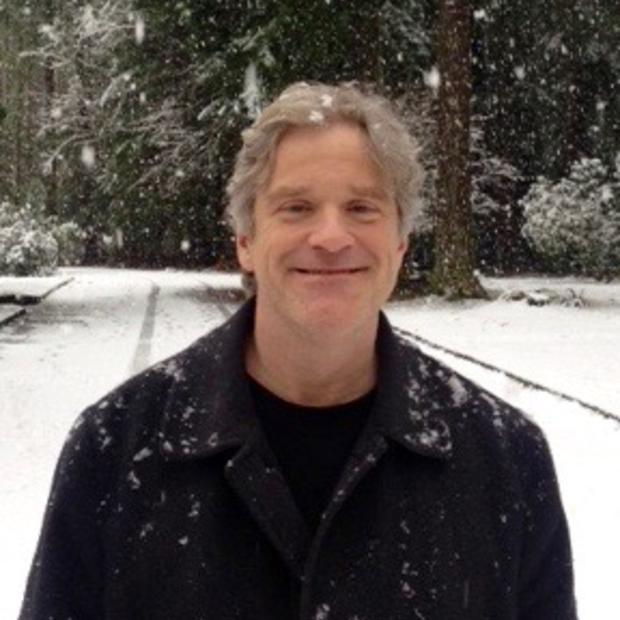The Seattle Weekly's Rick Anderson applies Rabbi Hillel's wisdom to the state's revenue impasse: If not now, when? "In announcing $2 billion in budget cuts recently, cuts that will wipe out health insurance and medical services for more than 55,000 of Washington's poorest, Gov. Chris Gregoire weirdly said she has 'not thought about revenue' to shore up those programs," Anderson writes. "What's more, she admitted she hasn't even considered the one foolproof way the Gov could earn back the money: hacking away at the state's generous corporate tax exemptions."
The exemption beneficiaries include such Northwest totems as Boeing and Microsoft, hence the political squeeze. The bugaboo of lost wages or relocation always looms large. Nevertheless, the governor has options that would mitigate the defunding of critical social and human services. "According to the state Department of Revenue, almost $14.8 billion in tax exemptions 'represent potential revenue' if the governor and legislature chose to repeal them. The state doesn't identify who specifically gets how much in official Washington tax breaks, cloaking the handouts in generic business terms. But it's not hard to figure out," Anderson writes. There's no mention of Clio, the muse of history, but Anderson clearly implies that Gregoire's legacy will be viewed through the exemption-issue lens, and whether she exhibits the requisite backbone to shepherd repeals. "Now? Will you, governor, at least freakin' think about it?" Anderson writes.
The salmon-anemia virus is spreading like an anadromous-fish version of Steven Soderbergh's Contagion (only salmon can't stay holed up at home or goop-up with Purell). The Seattlepi.com's Joel Connelly continues birddogging the evolving crisis. He writes, "The U.S. government should independently test samples of West Coast fish found with infectious salmon anemia, or ISA, rather than trusting Canadian government scientists, senators from Washington and Alaska said in a letter Wednesday."
The virus is a big deal, and the alarm sounding is expressed in direct, unvarnished language. Connelly quotes from the congressional letter that, "we should not rely on another government — particularly one that may have a motive to misrepresent its findings — to determine how we assess the risk ISA may pose to American fishery jobs." In fact, this is an economic, environmental, and diplomatic challenge. What better time to revisit the lyrics of the 1999 Oscar-nominated song, Blame Canada? "We must blame them and cause a fuss/Before somebody thinks of blaming us!"
Darcy Burner is no Harold Stassen. Stassen, the former Minnesota governor and boy-wonder politico, ran for president nine times. Burner, a woman-wonder politico, will try for congress a third time. One key qualifier: Burner announced she is running in the much more liberal first congressional district. As the Seattle Times' Jim Brunner reports, she will be facing some intra-party competition. "Burner joins an already crowded Democratic field vying for Inslee's seat. Announced candidates include state legislators Marko Liias, Roger Goodman and Steve Hobbs, former legislator Laura Ruderman, attorney Andrew Hughes and tech entrepreneur Darshan Rauniyar," Brunner writes.
Presupposing no candidates drop out, the 2012 primary winners could squeak by with twenty percent (or less) of the vote. Just as possible with a top-two system, the finalists might both be Democrats. Here's where a Stassen analogy has resonance. Like Stassen, Burner will be asked why she is running when there are so many other equally qualified candidates in the mix. A Hillel "If not now, when?" response probably won't shake it.
Portland mayoral races are always fascinating to track. Who can forget Mayor Bud Clark, the owner of the Goose Hollow Inn tavern and model for the "Expose yourself to art" poster? Clark, in fact, turned out to be a talented and inspired politician. As the Oregonian's Maxine Bernstein writes, one of the 'in-the-wings' candidates is Portland Police Chief Mike Reese.
Is Reese too square for unconventional Portland? He clearly has political traction. "Reese's police work, not only as chief but as Central precinct commander, lends itself to particularly strong support among Portland's elite and influential downtown business community," Bernstein writes. "His practicality and common-sense attitude impressed some key would-be donors, who first heard of Reese's serious interest two weeks ago. Others boast of the wonderful working relationship Reese established with the Portland Business Alliance."
Lastly, locavorism may be harder to pull off in the West (or at least the desert West). As Jackie Wheeler writes in High Country News, "Availability is the good news. The rest of the story is that eating locally, especially in the arid West, is still mostly a luxury." That concepts such as "locavorism" are even seriously debated in states like Arizona illustrate once again that this is not your Daddy's American West.
Link Summary
Seattle Weekly, "Gregoire's guts"
Seattlepi.com, "Senators: Don't trust Canada, U.S. must test for salmon virus"
Seattle Times, "Darcy Burner joins crowded race for Inslee seat"
High Country News, "Locavorism seems harder in the desert West"


